I’ve been living and working in New Zealand since the start of 2025. It’s hard to believe that I have just 4 months left to go on my visa! Since being in the country I’ve not only landed a job, I’ve also done numerous road trips, hiked many of New Zealand's famed great walks and started my blog Breeze Around the World.
Working locally has really given me an in on the community and Kiwi culture and allowed me to fund my travels in the country. And I’m especially glad I chose to work at a restaurant.
I’ve been reflecting on my NZ work experience specifically through the lens of being an expat from the U.S. Honestly, I expected working in hospitality in NZ to be pretty similar to back home. But there have been several big things I was not expecting!
I work in Nelson, NZ at Eddyline Pizzeria and Brewpub. Truth be told, this is my first real restaurant gig! I’ve worked in hospitality and tourism in the States, but never at a sit down restaurant. I was super excited to be pouring beers, chatting up patrons and smelling pizza all day. Thankfully, Eddyline didn’t mind my lack of direct experience. Enthusiasm and customer service skills were all I needed to land the job. I had a few days of training and then I was a full fledged bartending waitress extraordinaire!
After seven months at Eddyline, I can honestly say I’m so stoked I chose to work here. But I quickly learned that working in a New Zealand restaurant is pretty different from what I was used to in the States.
Not sure where to even start with finding a job and getting a visa? I'll dive more into those details below but first, here are seven things I wish I'd known before jumping in as an American working in a New Zealand restaurant.
1. You don’t have to commit your whole year to one job
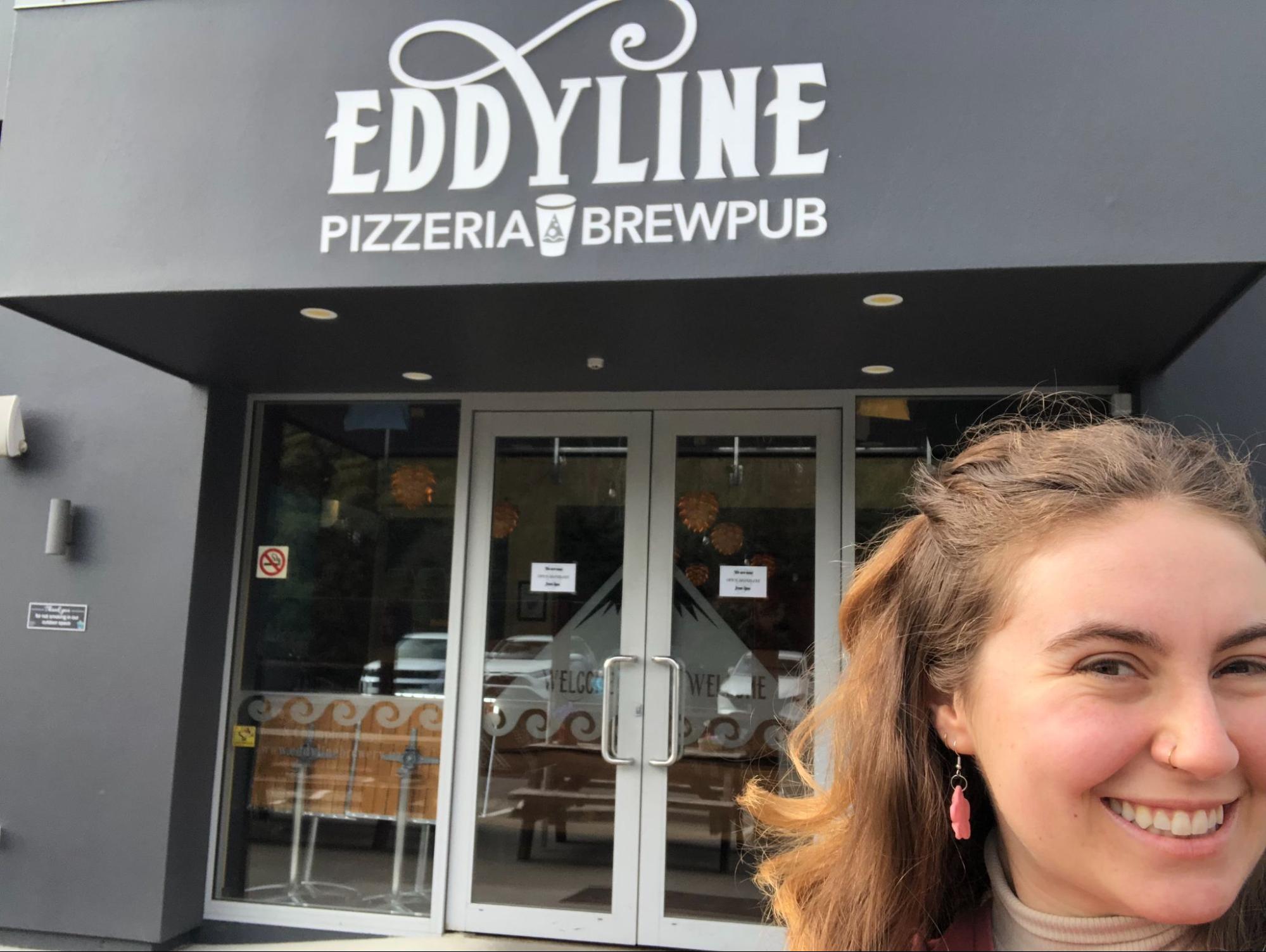
Going into the job interview, I was super nervous to admit that I was here on just a 1 year visa. I thought that leaving in 10 months would be a huge hindrance to hiring me. Quite the opposite! When they asked about how long I was planning to be in the area for, I got a little nervous and clambered out that I would be leaving around December… this was in March.
I then babbled that I know it’s perhaps less desirable to hire someone on the working holiday visa but that I would be a quick learner and a great addition to the team. They hardly even batted an eye at this because as it turns out, they hire expats regularly for even shorter periods of time. My now boss informed me the visa wouldn’t be a problem and that they typically ask for around a 3 month commitment.
I was floored! Just 3 months?! I’d never been in a job interview where the employer is so willing to train someone for such a short work agreement. They were actually thrilled I planned to spend most of my year in the area and wanted to work for them.
New Zealand really is set up to integrate expats. I’ve had a ton of American and European friends working here who had similar experiences getting hired for just a few months or even weeks. This allows you to move around to different areas of the country, or split your time between working and traveling.
You don’t have to go into your interview with a chip on your shoulder about your work visa, in the hospitality industry, they will welcome you!
2. Be Prepared for a (non) tipping culture
Having been to New Zealand before moving here, I knew that tipping was a rare occurrence. This is honestly great when you’re going out to eat because you don’t have to factor that extra 20% into your budget. But as an American working on the other side of it, sometimes I feel shocked that it’s not more prevalent.
The restaurant I work at does table service (taking orders/delivering food to the table) and honestly, we do a darn good job at it. Speaking for myself, I pretty much always remember which person ordered what. I like to bring people a fresh drink before they even finish the first and I offer meal suggestions with a smile. Honestly I do it as much for myself as for them. It makes me happy at work to be cheerful and create a great dining experience.
But sometimes you do all of this for a big table that had a bunch of kids under the age of 10 who left a huge mess and had a ton of extra requests. And when they leave and I’m cleaning up the water soaked pizza crusts and mozzarella off the floor and I can’t help but think: “dang, back home there would be $60 on this table for me.”
I know it might be kind of a horrible thought, and that tipping has gotten way out of control in the U.S. but sometimes it’s warranted! Just an extra little thank you for bringing their kids new coloring sheets when they got marinara sauce on the first one, or for getting them extra salad dressing or ice for their wine.
When occasional tips do float my way, they feel super special and I’m extra grateful. If you’re coming from a tipping job in the U.S. prepare for that cash flow to come to a halt, because it really doesn’t matter how above and beyond you go, tipping just isn’t on people's minds.
3. You'll constantly be asked, “Where are you from?!”
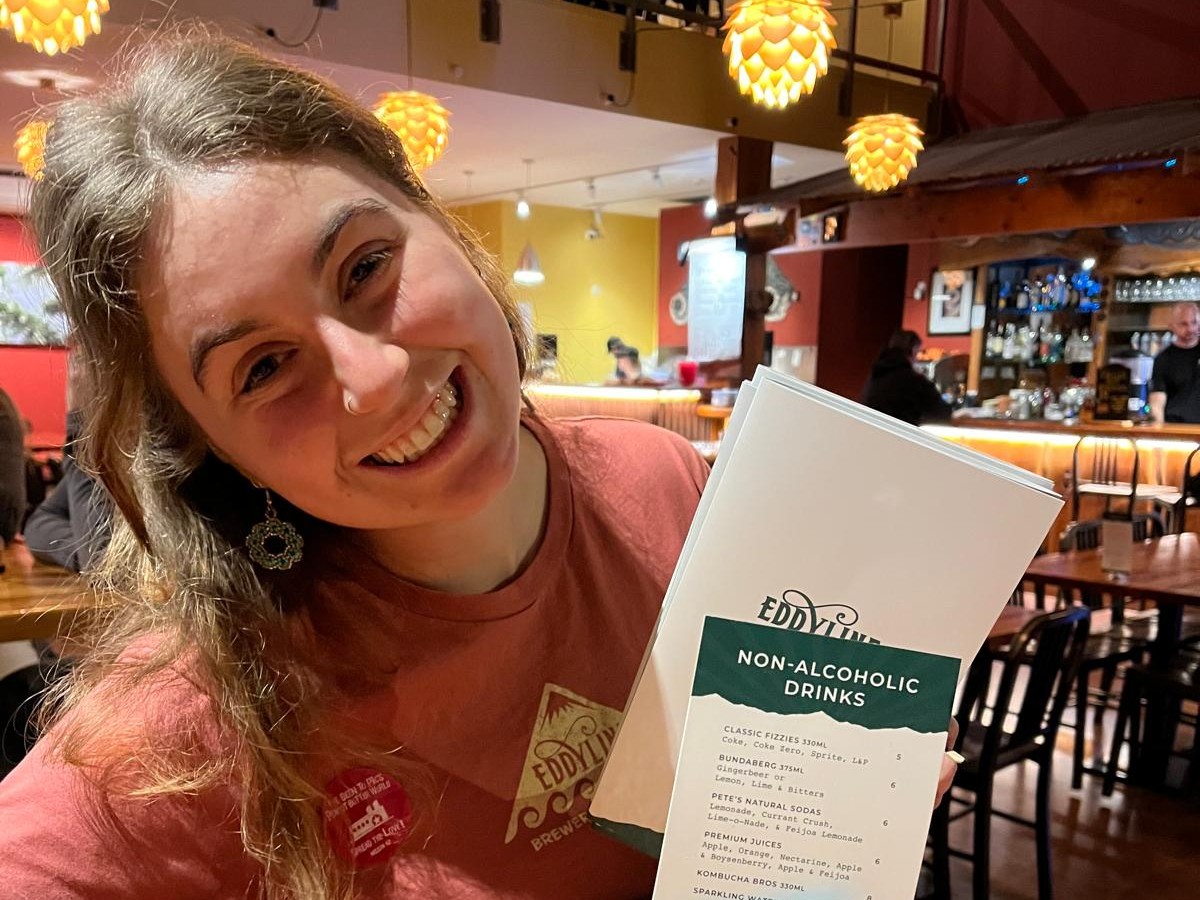
I can’t believe I didn’t think more about the fact that I would be a foreigner at work. When you’re traveling around New Zealand, you’re interacting with tons of people from all around the world at hostels, on trails, in museums and at big local attractions. Other times you’re just not interacting with many people at all. OR you’re interacting with grocery store clerks or waitstaff who talk with international tourists all the time.
Maybe it’s just because I’m living in a town that isn’t one of the BIG travel destinations or cities in New Zealand, but 90% of the people that dine at our restaurant are Kiwi. Which means that every day I come to work, I meet new people and they all want to know the same thing: “where are you from?” “Where's your accent from?” “Are you American?”
I am always super happy to chat with customers about where I’m from, how long I’m here for, if I want to extend my visa, how I’m liking New Zealand and why I picked moving to Nelson. But I honestly wasn’t expecting people to be so interested in this! Seriously, I would say more than half my tables ask me where I’m from. Before I got the job and decided to stick around Nelson, people either didn’t care that much (maybe because they figured I was just here on vacation) or I was talking to people from other countries and we were swapping information. But once I became fixed in one spot (work) it became clear to the locals that I wasn’t just passing through, I was an expat. And they wanted to know more!
Looking back at it, I can’t believe I didn’t think about this sooner, that I would be an obvious “international” employee and that would draw attention. But I’ve had some really great conversations with people that all started with “where are you from?”
4. Expect a laid back setting
Unless you’re getting a job in fine dining, you can expect most restaurant gigs in New Zealand to be fairly laid back. By nature, the Kiwi culture is not very demanding and people are pretty relaxed. You generally won’t have people waving you over to demand how long their food is going to take, or to snap at you that the pizza arrived cold.
Of course people do still have requests and also we mess up sometimes, but generally I find customers to be super casual when addressing any issues. I’ve even had customers happily eat the wrong pizza and only bring it up when they’re closing up their tab! Now with that being said, there is a flip side to this…
5. & passive aggressive customers
Okay you didn’t hear it from me, but sometimes Kiwis can just be a bit… passive aggressive. I know, I know, this may be harsh but I’m trying to write an honest review here! I have found that restaurant customers tend to be much more passive aggressive, rather than outright direct, about what they want.
Working in a restaurant in the States, you may expect someone to tell you “the music is too loud, can you turn it down” maybe followed by a “please.” In New Zealand, a request to turn down the music will probably be “gee the music’s really loud in here.” They’re much more on the passive side, and it’s your job to pick up the clues and figure out what they want.
Obviously this isn’t happening all the time, if someone wants fresh cracked pepper for example they’ll probably just ask for it. But if someone wants the AC turned up it may come in the form of a passive aggressive comment.
6. The drinking culture is different
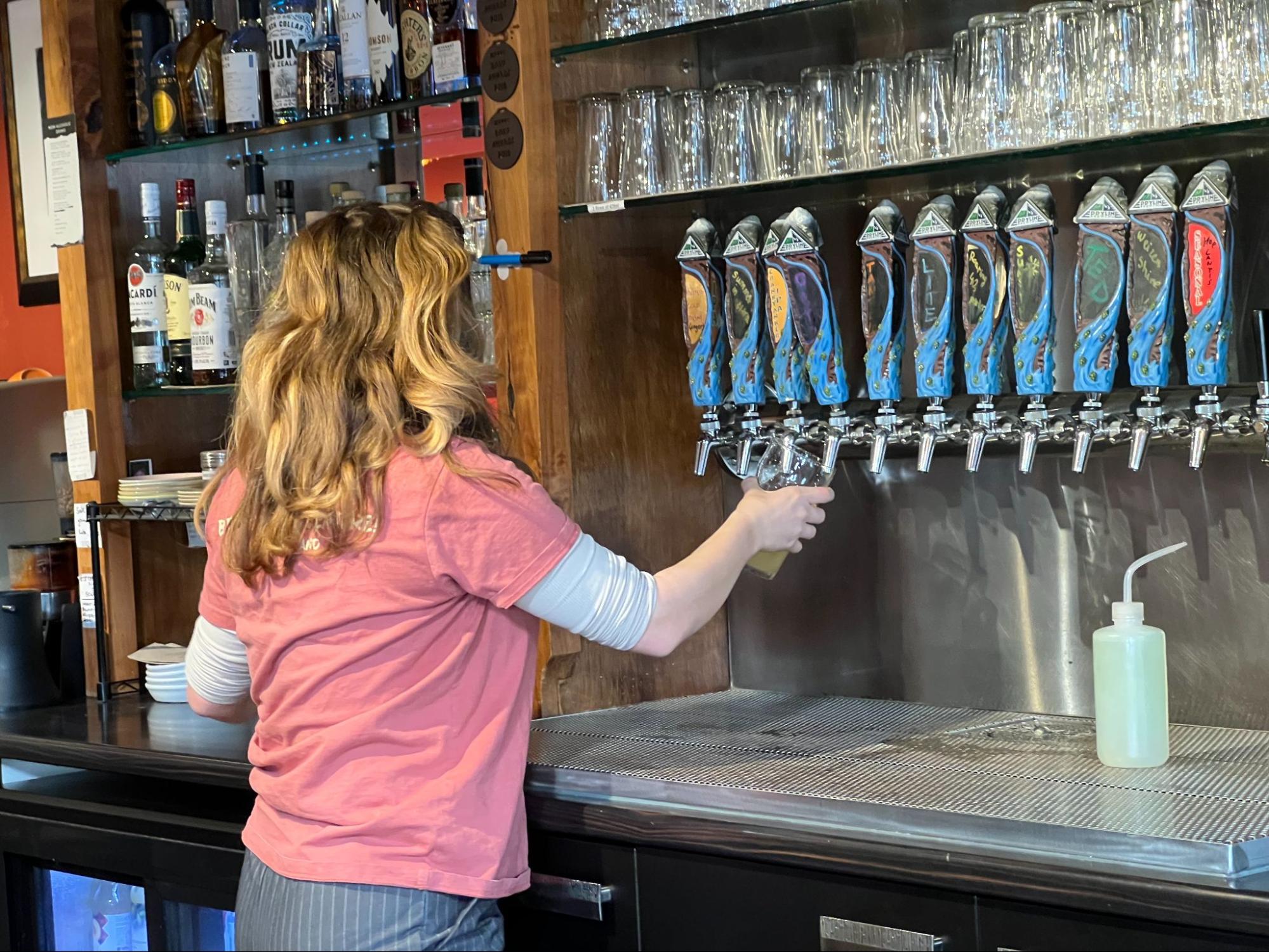
I would say that New Zealand has a prominent drinking culture. Working in a restaurant there are 3 things I want to point out about this. The first being a trend and the later two being laws. The last law really threw me for a loop!
In the States we’ve got “dry January,” an opt-in month off drinking after the holidays to start your year off right. Well in New Zealand, January is right in the middle of summer, and Kiwis like to drink. So instead of taking an alcohol break then, they switch it around and do it in their winter. Enter: dry June or dry July! This will definitely impact your alcohol sales if you’re working at any restaurant, and especially a bar.
Next up is the legal drinking age, which is 18 years of age. You are required to check someone's ID if they look younger than the age of 25.
But here’s the weird loophole! Parents or guardians can purchase alcohol for their minor! So you may have a 15 year old out to dinner with her parents, and the parents can legally buy her a beer to drink. Safe consumption still applies here but it is a real law that took some time for me to get used to.
7. You might become the spokesperson for America
Lastly, Kiwis are very interested in American politics. It’s pretty much unavoidable and just about every night at work I overhear political conversations (about America). If you are an American working at a restaurant, you are the perfect sitting duck for them to try to rope into a conversation about politics. Tread lightly here!
Thankfully this is not a daily occurrence for me, but it does happen a few times a week. People will just out of the gate ask what I think about the President, policies, war, you name it. What I try to remember is that I am not meant to be the spokesperson for my entire country at this dinner table conversation that I got pulled into. I usually try to gracefully back out, because as we all know, this can be a slippery slope.
In the States, it’s common advice not to bring up politics or religion at the dinner table. In New Zealand, this must not be a thing, as Kiwis LOVE to talk international politics. As the token American, you’ll almost certainly be asked to weigh in .
How to Apply for Restaurant Jobs in New Zealand
There are so many restaurants, coffee shops and bars all across New Zealand that you shouldn’t have a hard time finding a job as waitstaff. It took me about 2 weeks of searching for a job in Nelson before I had my first day as a waitress at Eddyline.
While TradeMe and Facebook are the most popular sites for job listings, I actually just saw Eddylines building and decided to send them an email inquiring about employment.
As with most restaurant jobs, they really just need your resume/CV and maybe even a cover letter before deciding if they want to interview you. My interview was super casual, they even offered me a beer! And of course, make sure you’ve acquired the working holiday visa. More on this in the section below!
If you’re looking to work at a brewery, some general knowledge about beer won’t hurt. One of my interview questions was if I liked beer (but it’s okay if you don’t drink!) and what my favorite kind was. The turnover in restaurants is high, so don’t worry about trying to line up an interview if you’re out of the country, they want to see you in person because they may ask you to work the next day!
While I chose to live and work in Nelson, you might be more interested in one of these other best places to live in New Zealand.
Working Holiday Visa in New Zealand
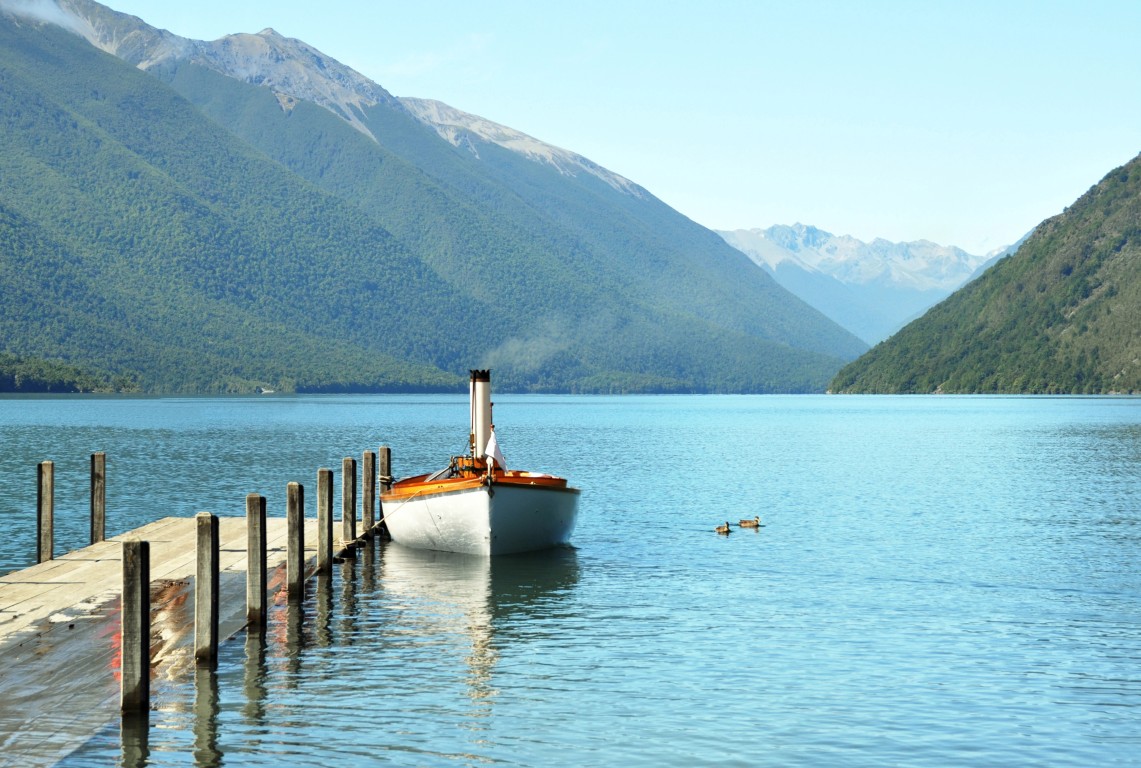
If you’re looking to kickstart your year in New Zealand, head over to the NZ government immigration website and apply for the working holiday visa. You must apply before the age of 30 and you have 1 year to enter the country. Once you’re here, you can stay for 1 year on the visa and work as much or as little as you’d like. I needed to give my employer my visa number during the onboarding process and that’s about the only time I’ve looked at it.
As an American applying for this visa, you just have to pay a small $25 fee and you’re almost guaranteed the visa. Other countries have a more strict entry process with limited visas given each year.
Although there are plenty of other visa options to move to New Zealand, the working holiday visa is the most straightforward, especially for people that just want to live year for a year.
Once you get here, you’ll be in for an adventure! If you work at a restaurant there’s enough cultural differences to keep you on your toes every day! The people I've met in New Zealand have been truly wonderful. I’ll always remember this year as my big year abroad!
If you do find yourself lucky enough to work in New Zealand, I’m sure you’ll find the challenges rewarding and the good times plentiful.
Enjoy Working at a Restaraunt in New Zealand
And there you have it, after 7 months of working at a restaurant in New Zealand, those are the biggest things that surprised me. Being in New Zealand as an American sort of feels like the uncanny valley, it’s like the U.S. but jusssst different enough that experience like working in a restaurant can throw you for a loop!
There’s something really special about actually getting to work a job abroad! Localizing to the neighborhood you live in and customizing your life with a unique work experience is what the working holiday visa is all about!







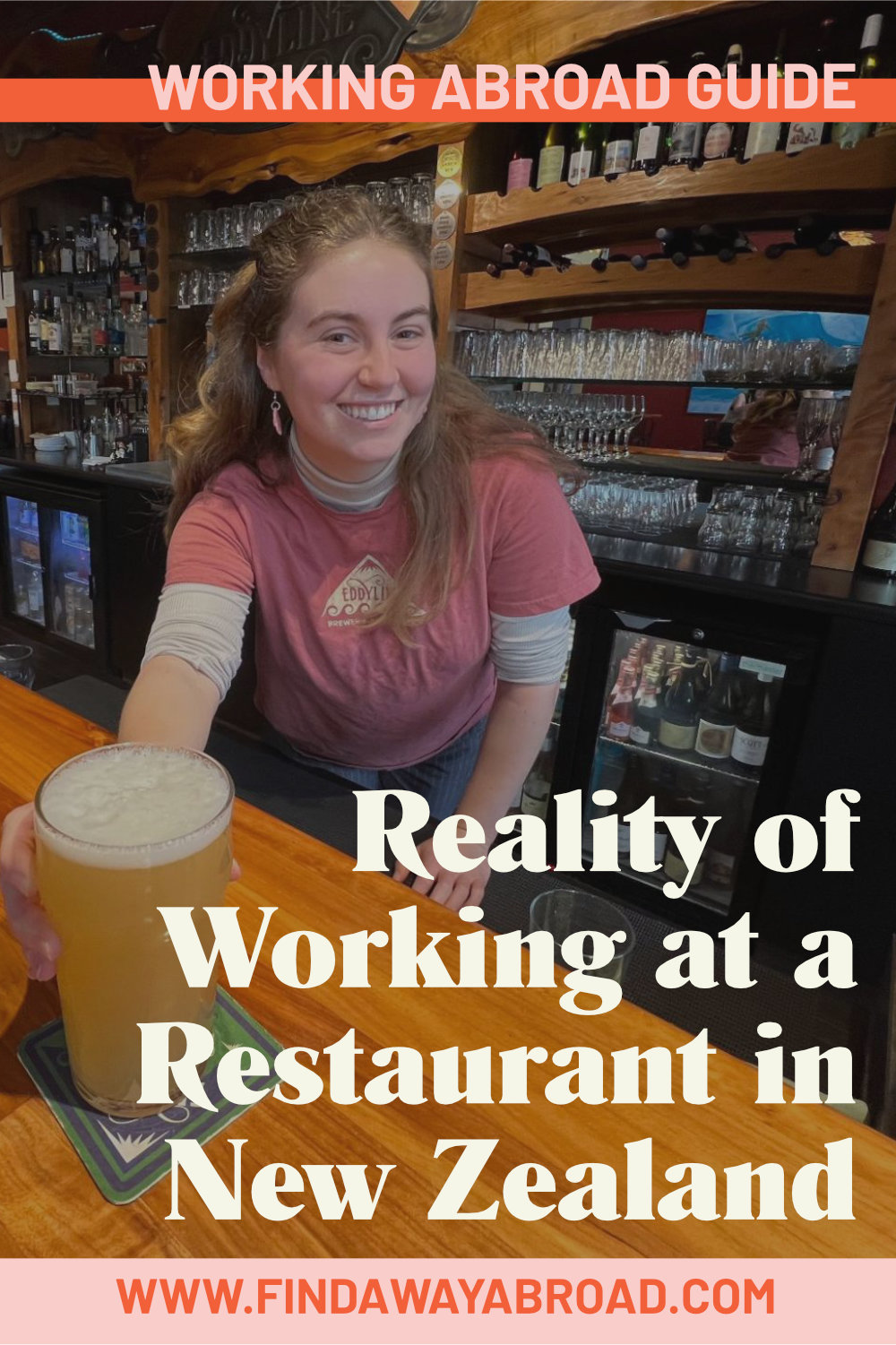

.png)
.png)